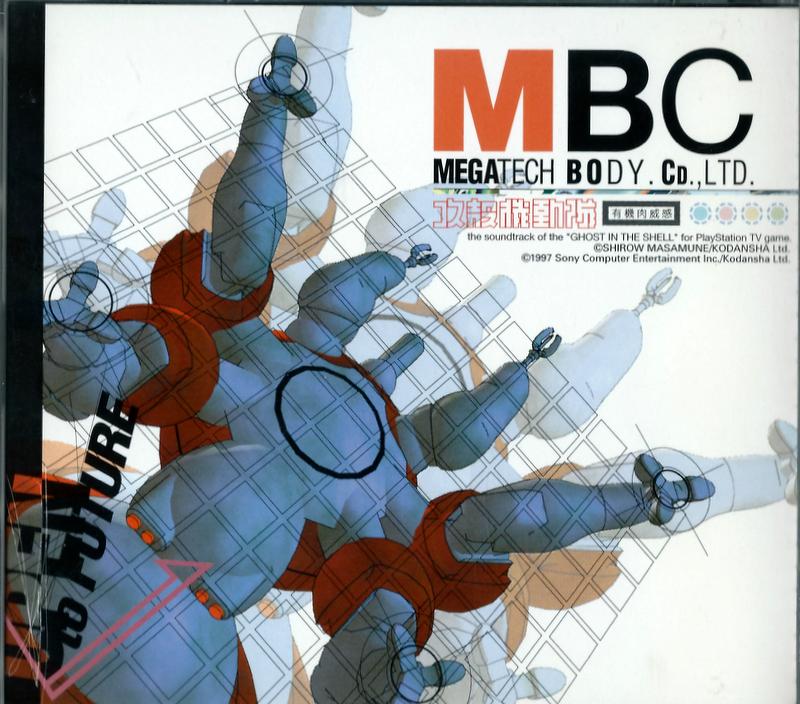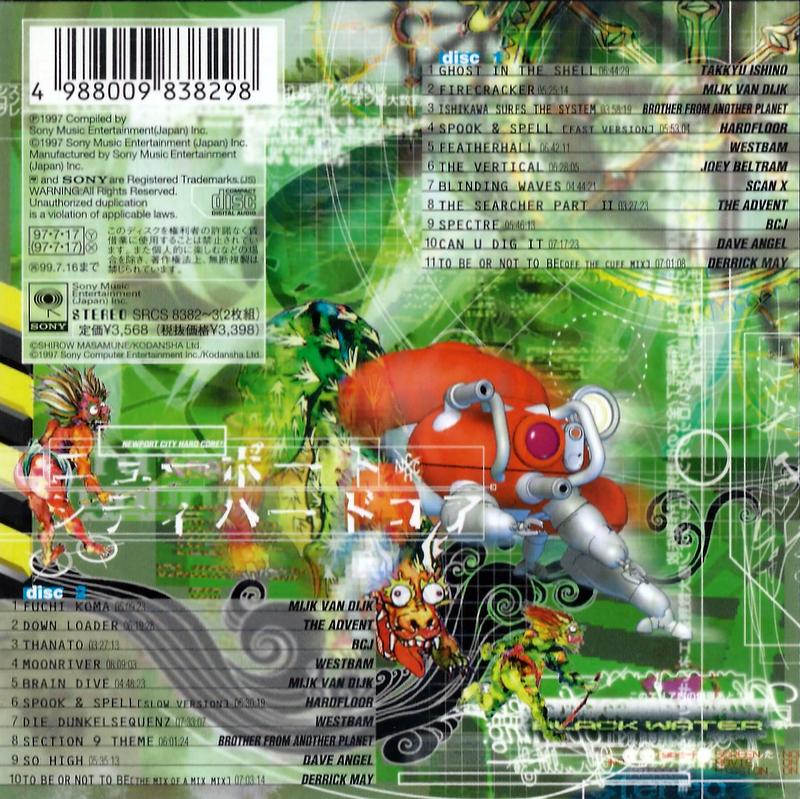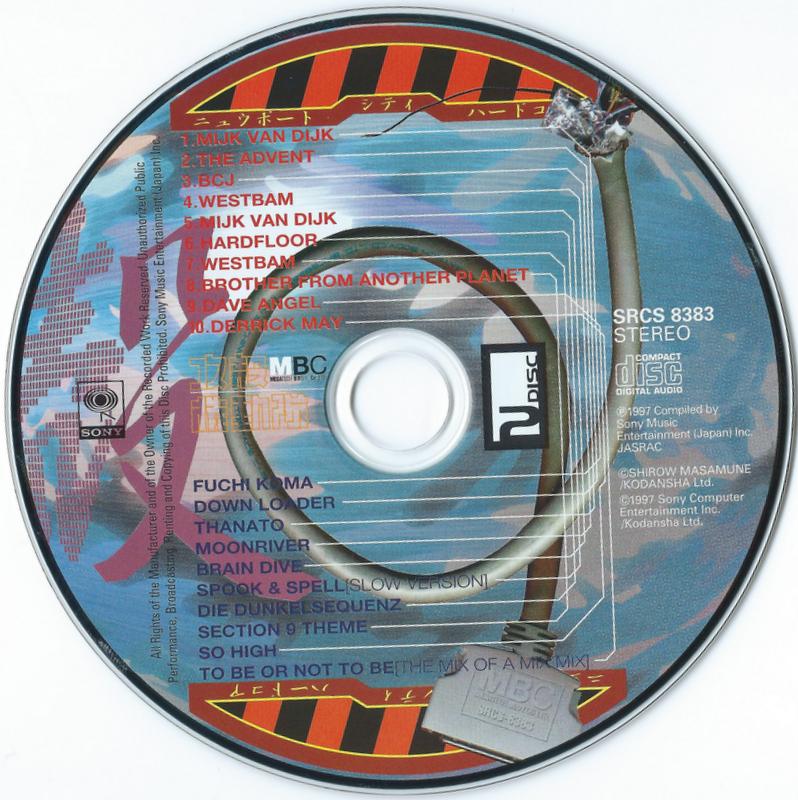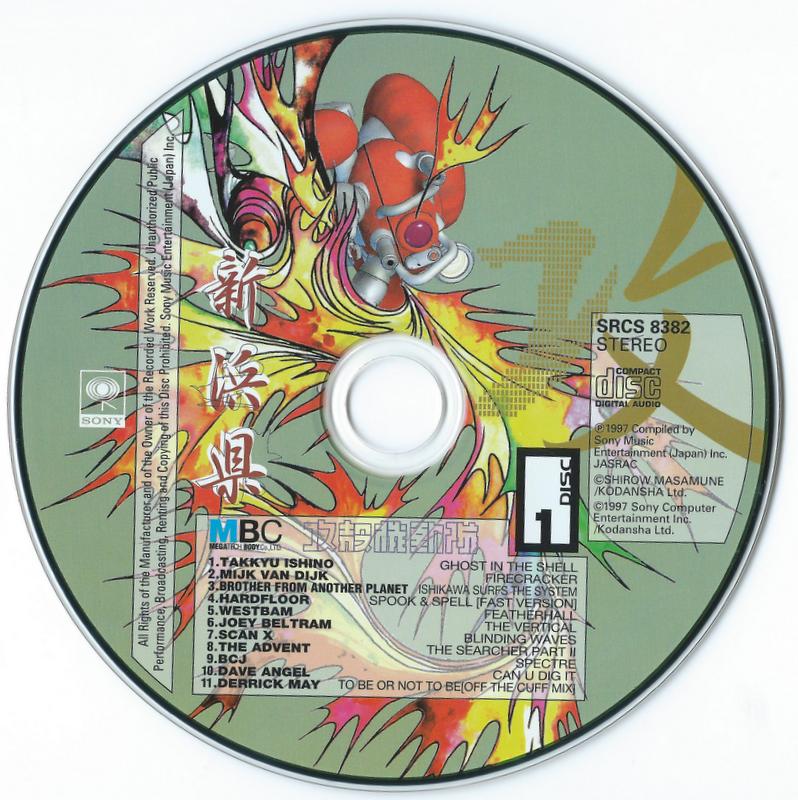Game Music Revue: Ghost In The Shell Megatech Body Co. Ltd (Playstation Game Soundtrack)

- Credited Composer: Various Artists
- Released July 17, 1997
- Label: Sony
- VGMdb Information Page: 2CD Edition, Single Disc Edition, 2LP Edition
For all its acclaim as an anime action epic, the original Ghost In The Shell film is actually a pretty quiet affair, peppered with only a scant few minutes of solid action. The majority of the film is a drama, that alternates between police procedural and meditative discussions on technology and what it means to be alive in a world where humanity and machine seem to be one in the same. The whole thing climaxes not with a giant battle, but with a conversation between a robot and a cyborg, discussing if life has a point without mortality.
Accompanying all of this is a legendary score by Kenji Kawai, which combines modern technology and traditional Japanese instrumentation with an end result that resembles something that Philip Glass or Dead Can Dance might compose. Just like the film itself, the score to Ghost In The Shell is haunting and beautiful, a work of art that is nearly unrivaled.
Got all that? Good. Because the Ghost In The Shell game that appeared on the PS1 is a third-person shooter where you take control of a tank and blow shit up real good. And the soundtrack is non-stop pulse-pounding techno, all of which has the subtlety and nuance of a jackhammer.
It’s pretty good, and supposedly the game is too, but talk about a disconnect.
The soundtrack to Ghost In The Shell is a compilation, comprised of both original tunes and a lot of previously-released material as well, and it features a wide variety of techno luminaries from around the world. The album’s title track (and best track on the record) is provided by Takkyu Ishino, of the seminal Japanese electronic act Denki Groove, and other big names in electronic music, including Joey Beltram, Mijk van Dijk, WestBam and Derrick May also make appearances.

Most of the tracks are good, if you’re into this sort of thing. There was a time in my life where I would’ve considered this to be the greatest video game soundtrack of all-time. If I had stumbled upon this record, say, not soon after its original release in 1997, right out of high school and freshly discovering the joys of electronic music, this album would’ve been my everything. Instead, I found the Wipeout soundtrack, and that served as my introduction to electronic music that helped me become the fan of the genre that I remain this very day.
And that’s probably for the best, because while the Ghost In The Shell soundtrack is a fantastic collection of mid-to-late 90s techno, it is only a fantastic collection of mid-to-late 90s techno, and nothing more. The Wipeout soundtracks opened the floodgates to the world of electronic music for me, this would’ve exposed to the singular world of techno, which would most likely have left me energetic and ecstatic for a bit, only for me to peter off of it not soon after.

I realize that some people reading this might be confused, because techno is a word that a lot of people use incorrectly, assuming that it means just about any form of electronic music, and that’s really not the case. Techno refers to a very specific type of electronic music, the type that’s served on a consistent BPM of 120 to 150 BPM, features a steady supply of synthesized effects, is completely devoid of anything resembling a verse-chorus-verse structure, and is usually lacking in vocals completely save for the very rare vocal sample.
If you’re only experience with electronic music is artists that are on the radio or covered by music magazines, you’ve probably never listened to techno. Prodigy is not techno, neither are The Chemical Brothers, Underworld or Fatboy Slim. Most of Moby’s music isn’t techno (although a lot of his best stuff is) and nothing that fell under the recent “EDM” banner counted as techno either. Techno isn’t radio-friendly. Techno works in the club, or as the background music to a mid-90s video game, and that’s about it. If you let techno get you into a groove, it can be downright euphoric, at least for a sort time, but no one can keep it going forever. Eventually the beat wears on you, it becomes boring at first and then just downright annoying.
This doesn’t happen on the dancefloor, nor is it a problem when the techno serves as background music to a fast-paced shoot-em-up. But on its own, serving as the accompaniment to a morning commute or household chores? I can’t imagine many techno albums that I could make it all the way through. But if you are the person who can absorb the non-stop energy of a techno mix for hours on end, then this soundtrack is probably for you, even if you’re like me and never even played the game for which it came.
When this soundtrack first came out in 1997, it was made available in three flavors; single CD, double CD and double LP. All of them are out of print now. Scanning various online retailers, it seems that the single CD is both the easiest to find and the most affordable. You can pick up that one at Discogs right now for less than $20. The other versions are going to cost you though. The 2CD set can set you back between $30 and $50 depending on the country of origin (all share the same tracklisting, they only vary in cover art), while the 2LP edition is the real rarity of the bunch, going between $50 and $80 depending on the condition.

Both the 2LP and single CD edition are 11 tracks in length, although their tracklistings are not identical. Both feature different mixes of Derrick May’s “To Be Or Not To Be.” The 2CD version is much expanded, containing 21 tracks in all, for a whopping two hours of non-stop techno bangers. Although it does lack the (superior) vinyl mix of the Derrick May track, this is obviously the version to get if you can track it down. Anyone out there up for one hour of techno banging against their skull will almost certainly be up for two.
Again, this is definitely not a CD for everyone, but for the techno freaks out there, it’s absolutely worth checking down.
Leave a Reply